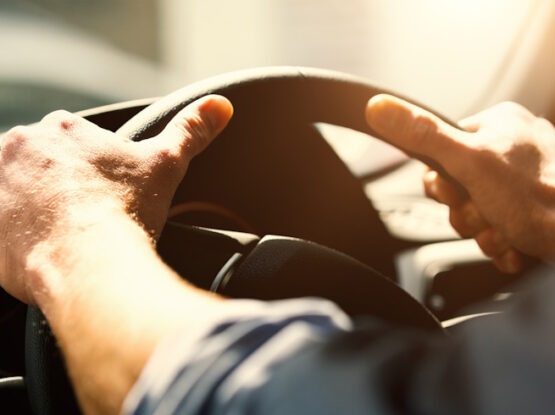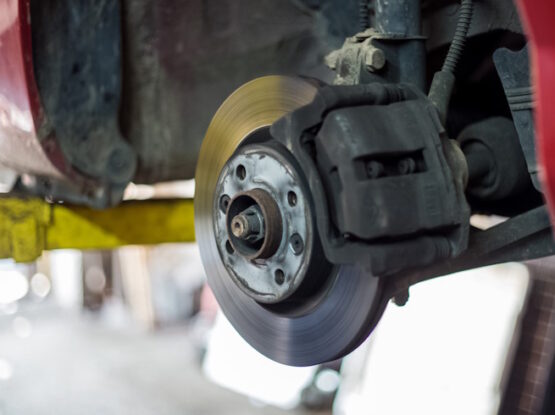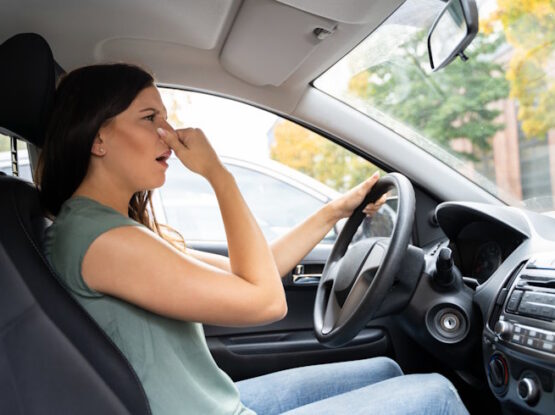Do you cringe every time you drive over bumps in the road? Is your car making a rattling noise? Does your car make rattling or vibrating noises when idling or accelerating? If your vehicle seems louder than normal, you may be dealing with a few loose parts or mechanical defects causing bothersome rattling rackets.
In this article, we’ll explore some of the most common culprits behind your car making a rattling noise and vibrations coming from your car. Identifying the root of the rattles can help you fix the problems and silence the noise pollution for good.
As your local AC Delco Service Center, the expert technicians at Paul’s Auto Repair have over 50 years of combined experience tracking down and repairing the sources of rattles, knocks, and vibrations in vehicles of every make and model. So, let’s see what the problem may be when your hear your car making a rattling noise!
A Quick Primer on Engines
Before diving into specific issues that can cause rattling noises in your car, let’s quickly review some key concepts on how engines work. This will provide helpful context for understanding the root causes of those annoying sounds.
Engines are complex mechanisms with hundreds of moving, combusting, and rotating parts. The basic function is to harness the power released from igniting the air/fuel mixture in the cylinders. This generates rotational forces that allow the crankshaft to spin. The crankshaft connects to the transmission and eventually turns the wheels of your vehicle.
Most car rattling noises emanate from problems with components involved in this combustion process. Issues like:
- Worn piston rings failing to contain cylinder pressure
- Faulty bearings allowing crankshaft movement
- Loose timing chain links reducing smooth gear movements
- Defective pulleys, belts, water pumps causing vibrations
Properly functioning engines run quietly and smoothly. So, rattling indicates a loss of performance. Now, let’s break down some of the common culprits behind these noises.
Potential Reasons You Hear Your Car Making a Rattling Noise
Worn Timing Chain
A loose or stretched timing chain often creates a noticeable rattling noise from the engine bay.
This chain connects gears that coordinate the opening and closing of valves. When links stretch, and slack builds, the chain vibrates against the timing cover. The result is a sound that’s not only annoying but also indicates a potential issue with your engine’s performance.
Replacing worn timing chains and gear adjusters eliminates the rattling. By doing so, you also protect against potential engine damage, such as a slipped timing chain or damaged valves.
Damaged Motor Mounts
Motor mounts secure the engine to the chassis and absorb vibrations. Cracked mounts allow the engine to shake more vigorously. This amplifies normal vibrations into loud rattles, potentially damaging other engine bay components.
Replacing damaged motor mounts not only reduces noise but also ensures the proper functioning of your vehicle’s engine. It is important to regularly check and replace these mounts if necessary to maintain a smooth and quiet ride.
Piston Slap
Over time, engine oil contamination, carbon buildup, or excessive heat causes pistons and cylinder walls to degrade. This slack allows pistons to rock back and forth in their chambers and “slap” around – leading to a loud knocking noise. If left unaddressed, piston slap can lead to serious engine damage.
Regular oil changes and using high-quality engine oil can help prevent piston slap. However, if you are already experiencing this issue, it is important to have your engine inspected by a professional mechanic for proper diagnosis and repair.
Thrown Rod Bearing
Rod bearings at the base of each connecting rod can wear down or spin loosely. This allows too much crankshaft play and loud, abnormal rattling during higher RPMs.
Identifying which rod bearing is damaged or thrown and then replacing it repairs the issue without requiring a full engine rebuild (because who has time for that?)
Bent Pulleys
The various pulleys directing belts around auxiliary components can bend after years of strain. Sometimes, they wear out with age, and other times, jolts or jerks can be the culprit.
If you notice a loud whining or screeching noise coming from your engine, it is likely due to a bent pulley. At high speeds their wobble creates vibrations amplified through the metal engine bay. Careful hammer taps can straighten slightly distorted pulleys, or replacements can easily fix the issue.
Defective Valve Lifters
Valve lifters are responsible for opening and closing the intake and exhaust valves in sync with the camshaft. When lifters become worn out or filled with debris, they can start rattling loudly. Replacing the damaged lifters restores quiet operation and will also help maintain optimal engine performance.
Clogged Fuel Injectors
Dirty fuel injectors struggle to atomize and spray gasoline into the cylinders properly. This causes ignition knock and rattling, especially at higher RPMs when a greater fuel supply is needed. Professional fuel injector cleaning or replacing clogged injectors fixes the issue, and many vehicles require this service every 50,000 miles.
Loose Belts and Pulleys
Various accessory belts route power from the crankshaft to components like the alternator, power steering pump, AC compressor, and more.
Loose belts can flap around and make squeaking noises. Tightened belts, replacing damaged ones, or fixing bent pulleys eliminate the rattling. Don’t let your belt go too long without attention since a broken belt can leave you stranded.
Damaged Flywheel
The flywheel connects the engine’s crankshaft to the transmission. Clutch plates bolted to its surface can crack and separate. This imbalance while spinning creates vibrations transmitted as loud rattling. Replacing broken flywheel pieces or the entire flywheel smooths operation.
Can I Fix These Engine Rattle Problems Myself?
With enough automotive repair knowledge and experience, you may be able to resolve some basic issues on your own if you hear your car making a rattling noise.
Tasks like tightening loose belts, changing worn spark plugs, or swapping dirty air filters could quiet noisy engines. However, taking on more advanced repairs risks further damage.
While saving money does appeal to many DIY-ers, attempting to service pistons, replace rod bearings, reset timing chains, or fix bent pulleys without proper skills and tools poses hazards. Not accurately torquing bolts, failing to align gears, overlooking secondary issues, or not having the means to access all engine areas could make problems worse.
This may necessitate costlier reworks by a professional anyway. So, while basic noise troubleshooting or exterior engine bay cleaning might help, leaving complex component replacement to certified mechanics ensures issues get properly fixed the first time.
Protect your investment and safety by letting experienced auto repair technicians handle significant engine repairs.
Let Paul’s Auto Repair Silence That Unwanted Engine Rattle
Here at Paul’s Auto Repair, our ASE Certified technicians have 50+ years of collective experience assessing and correcting all manner of engine performance issues.
We have advanced computer diagnostic systems to troubleshoot rattling causes accurately. And we use high-grade equipment to address worn internal components, fuel injectors, ignition coils, gaskets, sensors, and more.
Trust the engine repair experts to stop annoying rattling for good. Schedule service at our shop today!



